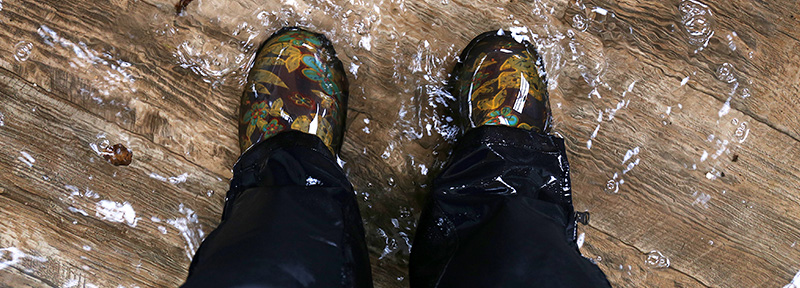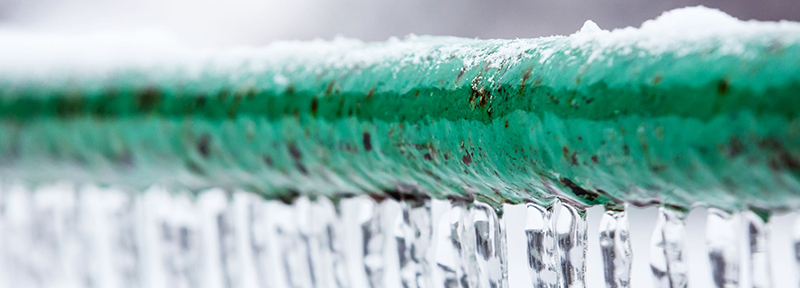
As we’ve seen, the weather in Texas, as well as other places across the country, can change rather unexpectedly. The 2021 storm that brought brutal temperatures and icy conditions to the Lone Star State has caused millions of residents to be without power in freezing conditions. These low temperatures and lack of heating has also produced numerous plumbing issues with water damage in ceilings, walls, and floors due to frozen or burst water pipes.
To better prepare for rapid changes in the weather conditions, here are some quick tips to help prevent your pipes from freezing:
- Let cold faucets drip in every sink and bathtub to allow a constant flow of water because running water does not freeze.
- Don’t turn off your heat to avoid uninsulated areas around your pipes to get cold or freeze. Seal any gaps around water pipes using foam insulation wraps or electrical heat tape to ensure more insulation.
- Open the cabinets in your kitchen and bathroom to expose those pipes to your home’s indoor heating. By doing so, you can provide some warm air to circulate around the pipes.
- If a frozen pipe is exposed and visible but hasn’t burst yet, you can try to thaw them using a space heater or blow dryer if power is available. Be sure to not use anything flammable to avoid the risk of a fire.
The HVAC system in your home is one of the most important elements controlling and maintaining your indoor temperature. With storms and temperature changes, it is unlikely that your HVAC will malfunction. However, problems can emerge after a winter storm.
The following can help troubleshoot some of the problems that could arise with your HVAC:
- The outdoor condenser coil could get dirty or clogged from ice and snow causing reduced airflow. This forces your HVAC System to work harder leading to increased energy costs. A blocked indoor air filter or outdoor condenser coil could potentially damage the entire system.
- Solution: Regular maintenance and periodic inspections of both the outdoor unit and indoor unit, especially before the heating season, by an HVAC technician.
- Regularly change the indoor air filter. See manufacturer guidelines for your area.
- Investing in a smart thermostat for your HVAC system can reduce the chances of it malfunctioning. Since thermostats control the temperature and airflow an HVAC system should produce, it is necessary to have an efficient thermostat that would not break down.
By following these quick tips, you can be sure to better prepared in the future for extreme changes in winter weather to safeguard your home and equipment.
Read Next: 5 Steps to Prevent Frozen Pipes




